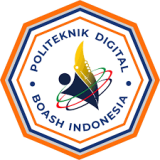Perception of Financial Literacy Generation Z in Personal Finance Management in the Digital Era
Keywords:
Financial literacy, Financial management, Generation Z, PerceptionAbstract
This research aims to understand the perception of financial literacy of Generation Z in personal financial management in the digital era through a qualitative approach. This study uses phenomenological methods to explore an in-depth understanding of Generation Z's experiences and perceptions related to financial literacy. Data were collected through in-depth interviews with three selected respondents using purposive sampling techniques. The results show that Generation Z has mixed perceptions of financial literacy, with some considering it as the key to financial independence, while others feel less confident in managing personal finances. These findings contribute to the development of financial literacy education strategies that are more in line with the needs of Generation Z in the digital era.
References
Daud, A. (2015). Analysis of factors influencing consumer purchasing decisions. 2, 471–479.
Gomber, P., Kauffman, R. J., Parker, C., & Weber, B. W. (2018). Special Issue: Financial Information Systems and the Fintech Revolution. Journal of Management Information Systems, 35(1), 12–18. https://doi.org/10.1080/07421222.2018.1440778
Huston, S. J. (2010). Measuring Financial Literacy. Journal of Consumer Affairs, 44(2), 296–316. https://doi.org/10.1111/j.1745-6606.2010.01170.x
Leora Klapper, Annamaria Lusardi, P. van O. (2015). Financial literacy around the world: An overview. Journal of Pension Economics and Finance, 10(4), 497–508. https://doi.org/10.1017/S1474747211000448
Lusardi, A. (2012). Numeracy, Financial Literacy, and financial Decision-Making. Numeracy, Financial Literacy, And Financial Decision-Making, 126(8), 212–218.
Lusardi, A., & Mitchell, O. S. (2013). The economic importance of financial literacy. Journal of Economic Literature, 52(1), 65.
Marendra, A., & Fahrani, H. (2024). The Influence of Digital Literacy and Financial Planning on the Financial Management Behavior of Digital Bank Users in Generation Z (Ages 20-27) in DKI Jakarta. Sec. 3.
Mason, C. L. ., & Wilson, R. M. S. (2000). Conceptualizing financial literacy, Business School Research Study, 7. Business School Research Series, 1–40.
McCrindle, M. (2019). Understanding Generation Z Recruiting, Training And Leading The Next Generation. McCrindle Research Pty Ltd.
Melisa, S. (2023). The role of financial literacy in financial management of students of the Tanjungpinang Development Institution.
OECD. (2005). Improving financial literacy: Analysis of issues and policies. In Improving Financial Literacy: Analysis of Issues and Policies (Vol. 9789264012). https://doi.org/10.1787/9789264012578-en
Financial Services Authority. (2017). Financial Services Authority Circular Letter Number 30/Seojk.07/2017. Financial Services Authority Circular Letter Number 30/Seojk.07/2017, 1689–1699.
Permana, N., Yulianti, G., & Austin, D. (2025). Saving and investing: Understanding the basics of financial literacy for Gen Z. Sec. 4.
Remund, D. L. (2010). Financial literacy explicated: The case for a clearer definition in an increasingly complex economy. Journal of Consumer Affairs, 44(2), 276–295. https://doi.org/10.1111/j.1745-6606.2010.01169.x
Siregar, M. A., & Pratiwi, D. P. (2024). The Influence of Financial Literacy of Generation Z with Lifestyle as an Intervening Variable. 3068–3083.
Downloads
Published
How to Cite
Issue
Section
Citation Check
License
Copyright (c) 2025 Retnaningsih, Agus Mujiman, Gloria Putri Wuryani

This work is licensed under a Creative Commons Attribution 4.0 International License.










